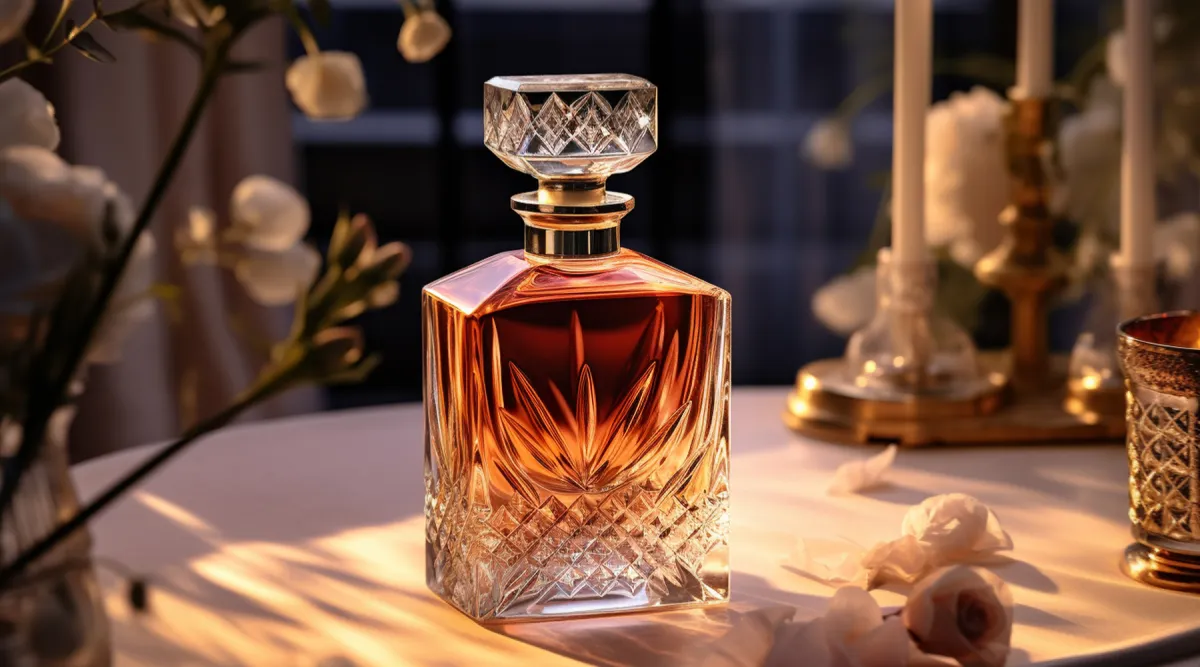Smell the Success in India’s Billion-Dollar Perfume Market
India luxury perfume market is booming, set to nearly double from INR 953 Cr in 2023 to INR 1,824 Cr by 2029, as consumers seek exclusivity and sensory experiences.

The moment a luxury perfume caresses the skin, it whispers a tale of elegance, intrigue, and timeless sophistication, telling a story. It’s not just about scent it’s about identity, aspiration, and an unspoken aura of confidence.
Imagine stepping into an opulent boutique, where glass-encased bottles glisten like jewels, each holding a secret blend of sophistication. A single spritz can transport an individual to a Parisian evening, a royal court, or a cherished memory long forgotten.
In India, consumers are no longer just buying perfumes; they are investing in experiences, emotions, and exclusivity.
Gone are the days when fragrance was merely an afterthought. The Indian luxury perfume market, valued at INR 953 Cr in 2023, is set to almost double to INR 1,824 Cr by 2029.
This isn’t just growth it’s a cultural transformation. Buyers are no longer content with generic scents; they crave depth, exclusivity, and a sensory journey unlike any other.
The question now is: Will Indian brands evolve to meet this demand, or will international giants continue to dominate the olfactory landscape?
The Power of Perfume
Perfume is more than a fragrance; it’s a silent statement. The right scent can make a person unforgettable. Disposable income is rising from INR 156 Mn in 2016 to INR 239 Mn in 2021 meaning more people are investing in personal luxuries.
Perfume is no longer an occasional splurge but an essential part of a lifestyle.
By 2029, the market will be dominated by perfumes under product type at INR 1,799.93 Cr.
But here’s the real opportunity: personalization. Consumers are craving exclusivity custom blends, limited editions, and fragrances that tell their unique stories.
AI-driven personalization is revolutionizing this space, with innovations like Tira’s “Fragrance Finder” simplifying perfume selection through data-driven recommendations.
Luxury buyers don’t just want a product; they expect technology to curate a scent tailored specifically to their preferences.
Will Indian companies tap into this demand for uniqueness, or will they watch as international giants take the lead?
Breaking Barriers to the Rise of Unisex Fragrances
Who decided floral is for women and musk is for men? Indian consumers are breaking these outdated norms. Women’s fragrances led the market in 2023 with INR 482.78 Cr, followed by men’s at INR 417.37 Cr.
But the real disruptor? The unisex segment. Though small at INR 52.84 Cr, it’s projected to hit INR 109.53 Cr by 2029.
The modern buyer doesn’t want to be boxed in. They want a scent that speaks to them, not one dictated by tradition.
The shift toward individuality is undeniable. Brands that embrace gender-fluid fragrances with bold storytelling will carve out a powerful niche in the industry.
Can Digital Aroma Surpass Traditional Channels?
Buying a luxury perfume is about more than just clicking ‘Add to Cart.’ It’s about the feel of the bottle in your hands, the excitement of the first spray, the way a scent evolves on your skin. That’s why specialty stores still dominate, generating INR 860.14 Cr in 2023.
But the digital wave is coming. Online sales are at INR 92.86 Cr and are expected to more than double to INR 200.57 Cr by 2029.
The challenge? How do you make a customer fall in love with a fragrance they can’t physically smell?
Brands that nail AI-driven recommendations, virtual fragrance trials, and immersive digital storytelling will win. But let’s get real can e-commerce ever replace the magic of an in-store experience?
Protecting Luxury’s Integrity
With luxury comes imitation, and counterfeit perfumes are flooding online marketplaces. These fakes threaten brand reputation and consumer trust.
The fight against counterfeits will need to go beyond technology like blockchain authentication. Brands must make authenticity part of their core story.
Because when consumers buy luxury, they’re buying heritage, craftsmanship, and trust. The big question is: Can Indian brands step up and create a narrative that makes counterfeits irrelevant?
The Future Smells Like Opportunity
India’s luxury perfume market is at a turning point. Ayurveda-infused scents, sustainability-led brands like Forest Essentials, and bespoke fragrance blending are reshaping the space.
But the real question remains: will Indian brands rise to the occasion and challenge international dominance?
Can digital-first strategies truly capture the essence of luxury without losing the magic of tradition?
This market isn’t just about selling perfumes it’s about crafting legacies. The brands that understand this will own more than just market share; they will own emotions, memories, and moments.
The race is on: Investors, entrepreneurs, and brands are you ready to claim your place at the top?


